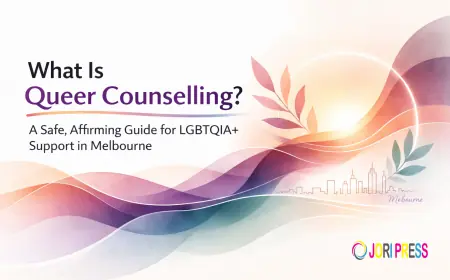Love, Parenting, and Balance: Strengthening Relationships and Family Life in the Canada
At Between the Covers Magazine, we believe that understanding this balance is one of life’s greatest acts of love. In this article, we explore the harmony between relationships and parenthood, offering thoughtful guidance, emotional insight, and real-world advice that speaks to families everywhere.

Balancing love and family is a beautiful contradiction — deeply fulfilling yet incredibly demanding. Across the Canada , couples find themselves caught between nurturing their relationship and raising children in a world that never slows down. Each day brings choices: time for the kids or time for each other? Paying the bills or planning a date night?
At Between the Covers Magazine, we believe that understanding this balance is one of life’s greatest acts of love. In this article, we explore the harmony between relationships and parenthood, offering thoughtful guidance, emotional insight, and real-world advice that speaks to families everywhere.
1. When Two Become Three (or More)
The arrival of a child transforms everything — routines, priorities, and even the way love is expressed. According to research by the Canada National Childbirth Trust (NCT, 2023), nearly two-thirds of new parents feel a strain on their romantic connection during the early years of raising children.
This shift is natural. Sleepless nights, feeding schedules, and constant worry leave little room for romance. But transformation doesn’t have to mean loss — it can mean evolution.
Couples who consciously adapt together — sharing duties, checking in emotionally, and keeping humour alive — often find their bond deepens in unexpected ways.
Small rituals like morning coffee together or evening walks after putting the kids to bed can act as anchors amid the storm.
2. Talk, Don’t Assume: Communication That Connects
When life gets busy, conversation is usually the first thing to fade. For many UK couples, communication becomes logistical: who’s cooking, who’s paying the bills, who’s picking up the kids?
However, the healthiest relationships — as experts in Relationship & Advice point out — are built on emotional transparency.
According to Relate Canada (2024), couples who engage in daily, open communication are 30% more likely to report relationship satisfaction.
Try these practices:
-
Replace assumptions with questions: “How was your day?” instead of “You seem fine.”
-
Schedule brief, daily check-ins.
-
Express appreciation regularly — even for small things.
When communication is kind and consistent, intimacy follows naturally.
3. Parenting Differences: A Strength, Not a Struggle
Disagreements about parenting are common, but they don’t have to divide. Many couples in the Parenting and Family space struggle to align their parenting styles — one being strict, the other lenient. Instead of competing, the goal should be complementing.
Experts encourage couples to build shared values instead of identical methods. Whether it’s respect, kindness, or honesty, when the family core is united, small differences fade in importance.
Dr. Sarah Whitfield, a family counsellor in London, reminds us that “Children don’t need perfect parents; they need parents who respect each other.”
4. The Evolving British Family
The modern Canada family looks different than it did a generation ago. Two working parents, blended families, and diverse family structures are now the norm. But these evolving roles can create new sources of pressure — especially when parents feel they must “do it all.”
The Office for National Statistics (2024) reports that over 70% of British mothers now work full-time, a dramatic rise from two decades ago. This shift has redefined partnership within the home.
The strongest families share both the load and the love. Household tasks, emotional support, and career ambitions are shared goals, not competing ones. The result? A partnership that feels fair, flexible, and fulfilling.
5. Reconnecting Through Care and Curiosity
In the whirlwind of parenting, partners sometimes forget to simply see each other. The person who once felt like your soulmate can start to feel like your co-worker in family management.
Rekindling connection doesn’t require grand gestures — it requires presence. Make time to ask genuine questions, listen with curiosity, and rediscover what makes your partner feel appreciated.
Even brief moments — watching a show together, holding hands during a walk, or laughing about the kids’ latest mischief — can remind you of the friendship that started it all.
6. Digital Overload: The Quiet Relationship Killer
Technology has reshaped how families communicate, for better and worse. Parents are often glued to work emails or scrolling through phones while children compete for attention.
The Family Links UK (2023) program warns that overuse of devices leads to emotional distance at home. Setting tech boundaries — such as “no phones during meals” or “no screens after 9 PM” — helps everyone reconnect.
In relationships, digital minimalism restores the art of presence — looking into each other’s eyes, sharing laughter, and being fully there.
7. Arguments Aren’t Failures — They’re Opportunities
Every couple argues. What separates strong relationships from fragile ones is how conflict is handled.
Research in Relationship & Advice communities shows that couples who argue constructively — focusing on issues rather than personalities — are more resilient long-term.
To navigate conflict effectively:
-
Discuss issues privately, not in front of children.
-
Avoid “always” and “never” statements.
-
End discussions with an act of kindness or reassurance.
Conflict can actually deepen trust when handled with empathy and calm.
8. The Family Mirror: What Children See in You
Children absorb lessons about love from watching their parents. They observe how partners speak to each other, how they handle stress, and how they show affection.
A home where parents respect, support, and forgive one another gives children a template for healthy relationships in adulthood.
In this sense, Parenting and Family values go hand in hand — love between parents is the foundation of emotional safety for every child.
9. Diversity in Love and Family Across the UK
Across Britain, love and family take many forms. From multicultural households to single parents, stepfamilies, and same-sex partnerships, each brings its own beauty and resilience.
Modern family life is no longer about fitting a mold — it’s about writing your own story. Publications like Between the Covers Magazine celebrate this evolution, showing how relationships, in all their diversity, continue to shape the emotional fabric of society.
10. Embracing Imperfection: The Real Key to Balance
No family is perfect — and that’s perfectly fine. The expectation of flawless parenting or a conflict-free marriage only leads to guilt and disappointment.
Real love thrives in imperfection — in the late-night talks, the unplanned laughter, the shared exhaustion.
True balance isn’t about splitting time evenly between love and parenting; it’s about knowing when to give more to one and trust that the other will wait with patience and understanding.
Conclusion: Choosing Love, Every Day
At its heart, family life is an ongoing love story — one that grows with every shared meal, every tear wiped away, and every late-night conversation.
Building harmony between relationships and parenting is never easy, but it’s always worth it. When couples prioritise empathy, communication, and self-awareness, they don’t just survive the challenges — they thrive through them.
Love is not lost in parenthood. It simply learns new ways to express itself.
? Contact Us
-
Subscribe now:
-
Email us: [email protected]
Citations
-
National Childbirth Trust (NCT). Parent Relationships After Baby. 2023.
-
Relate UK. The Way We Are Now: National Relationship Report. 2024.
-
Office for National Statistics (ONS). Labour Market Overview: Families and Work. 2024.
-
Family Links UK. Parenting for Emotional Resilience. 2023.
-
Whitfield, S. Understanding Family Dynamics in Modern Britain. London, 2022.
What's Your Reaction?
 Like
0
Like
0
 Dislike
0
Dislike
0
 Love
0
Love
0
 Funny
0
Funny
0
 Angry
0
Angry
0
 Sad
0
Sad
0
 Wow
0
Wow
0


















































